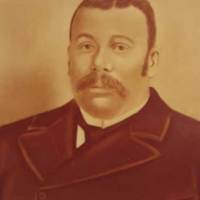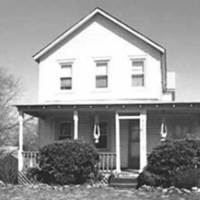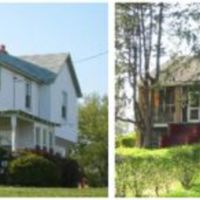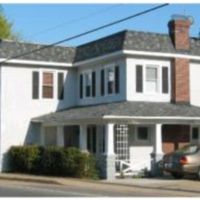Browse Items (4 items total)
Henry Louis Holmes was an early leader in Arlington's African American community. Enslaved before the Civil War, Holmes was drawn to Arlington by Freedman's Village. While little is known about his early life, after the war Holmes served as a leader in the Radical Republican political party, was active in the black community through the Mason and Odd Fellow fraternal organizations, and served as a trustee for St. John's Baptist Church. In 1882 he helped to found the Butler-Holmes community, where he lived with his wife Emma and their children.
Collection: Neighborhoods
William H. Butler was an early leader in Arlington's African American community. Butler, his wife Anne, and their four children were enslaved before the Civil War. They were drawn to Arlington by the Freedman's Village contraband camp. He served in the Union Army from 1863 to 1865. He served as Commissioner of Roads in 1879, as Surveyor of the Roads and Superintendent of the Poor throughout the 1880s, and he was the co-founder of the Butler-Holmes black neighborhood in 1882. The Butler family lived in the family home, pictured here, in that community into the modern era.
Collection: Neighborhoods
Butler-Holmes was founded in 1882 by African American community leaders and politicians William H. Butler and Henry Louis Holmes. The neighborhood was founded as a middle class African American community.
Butler-Holmes was an early streetcar suburb in Arlington. The community originally grew along the Washington, Arlington, and Falls Church Railway trolley line and followed the suburban ideals of the time in housing type. This photographs shows two popular housing choices in the neighborhood via Butler's Queen Anne style home on the left, and Holmes' Bungalow style home on the right.
Today Butler-Holmes is known as Penrose.
Butler-Holmes was an early streetcar suburb in Arlington. The community originally grew along the Washington, Arlington, and Falls Church Railway trolley line and followed the suburban ideals of the time in housing type. This photographs shows two popular housing choices in the neighborhood via Butler's Queen Anne style home on the left, and Holmes' Bungalow style home on the right.
Today Butler-Holmes is known as Penrose.
Collection: Neighborhoods
At Hunter Station the Fort Myer Branch of the Washington, Alexandria, and Falls Church commuter rail line met with trolley car lines. Hunter Station was located within the African American Butler-Holmes community, today called Penrose. With connections to Rosslyn, Georgetown, and downtown Washington, these lines helped to expand Butler-Holmes throughout the early twentieth century. The community was also served by the Columbia Station near present-day Columbia Pike and Walter Reed Drive, but the station's exact location is not known. Today Hunter Station is a private residence.
Collection: Neighborhoods



